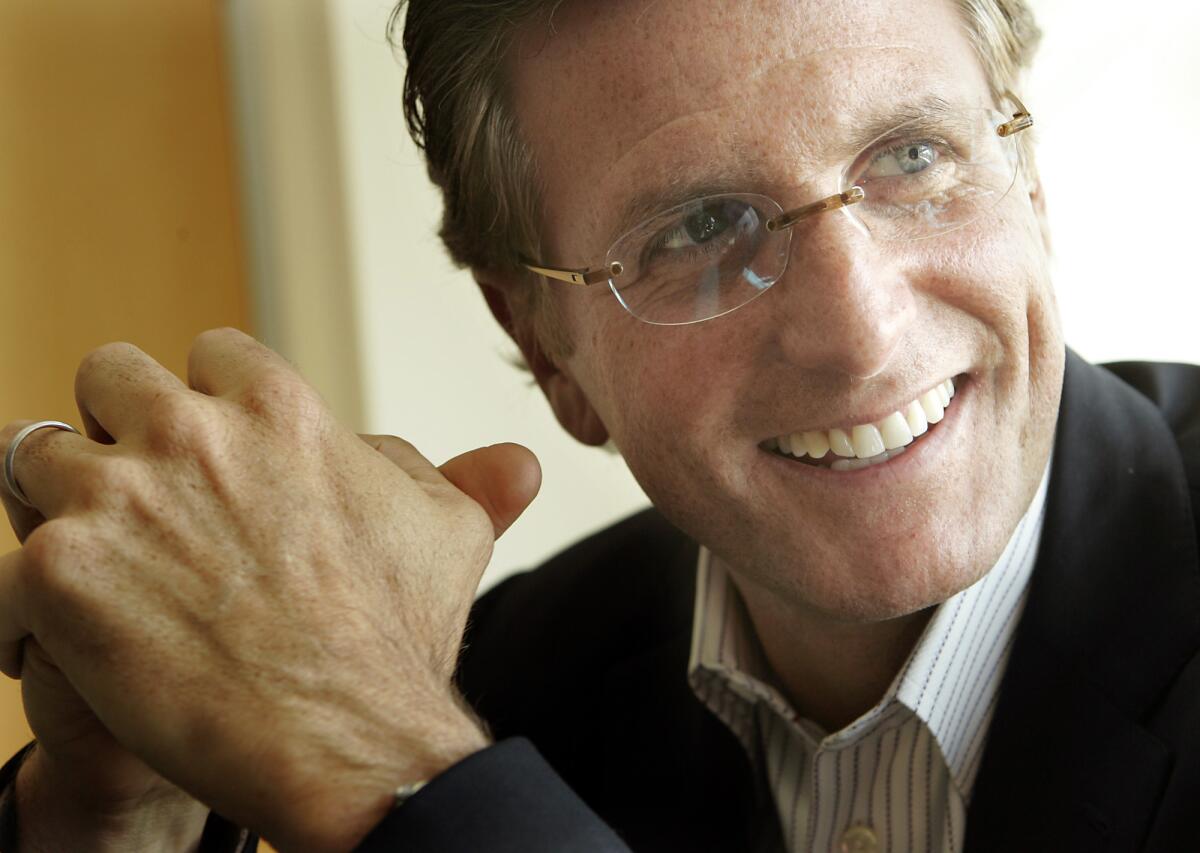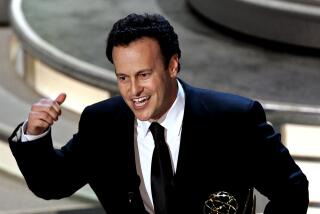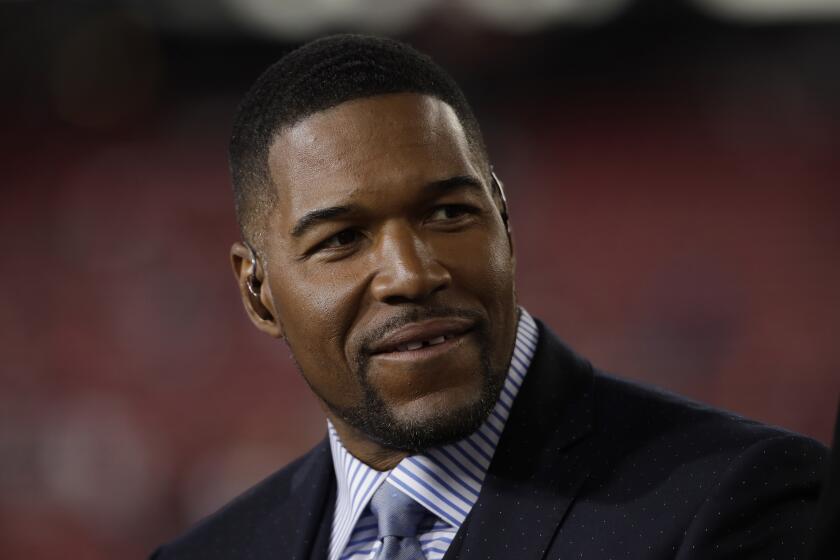Analysis: What did Kevin Reilly’s tenure mean for Fox and for TV?

Was Fox Entertainment Chairman Kevin Reilly a visionary or a seat-warmer? The jury is out on that one, so let’s look at the evidence.
Reilly announced Thursday that he will leave his current post after a seven-year run at Fox. Rumors persisted of power struggles with his boss, Peter Rice, although it’s notable that no successor was immediately named. When a company puts a hit out on the person at the top, a successor is typically waiting in the wings, along with a news release. So it’s likely Reilly wasn’t being totally disingenuous when his farewell email to Fox employees spoke of a need to stay “fresh.”
He arrived at a time of triumph and is, it must be said, leaving a network in retreat. In 2007 — with Reilly having endured a dramatic falling-out with the boss in his previous job, NBC’s Jeff Zucker — Fox was riding high with “American Idol.” The singing contest was a phenomenon the likes of which TV had not seen in years, and it enabled Fox to stay No. 1 no matter what rivals threw at it. “Idol’s” rapid ratings decline over the past few seasons has sent the network reeling.
It would be unfair to blame Reilly completely for Fox’s current predicament. “Idol” was a true sensation. Its fade-out would have created long-term problems whether it happened slowly or — as is the case — suddenly.
Reilly and his fans can point to some real successes. “Sleepy Hollow” mixes historical fantasy and crime drama in alluring ways that connected with audiences. “The Following,” the crime thriller with Kevin Bacon, stood out in a crowded genre with its unblinking approach to violence.
The record on comedies is even better. Reilly greenlighted three that have become signatures for the network and have plenty of room to grow over the next few seasons: “New Girl,” “The Mindy Project” and “Brooklyn Nine-Nine.” Viewership hasn’t been record-breaking, but sometimes it can take time to develop a fan base around a show.
On the other hand, though, Reilly’s main job was to find scripted shows that would blunt “Idol’s” inescapable decline, whenever it came. And on that score, he failed.
He put his weight behind a long list of dramas with short — in some cases blink-and-you-missed-’em — runs: “Alcatraz,” “Chicago Code,” “Dollhouse,” “The Finder,” “Lie to Me,” “Human Target,” “Touch.” The list goes on. Impressive as “Sleepy Hollow” and “The Following” are, it’s still striking that those are really his only dramatic hits after seven years on the job. And that was the case even though he had the promotional power of “Idol” — back when “Idol” actually had promotional power.
So that would seem to indicate that TV historians will see Reilly as a transitional figure — a guy who stood between the glory years of “Idol” and whatever future heights Fox will presumably reach.
But late in his tenure, Reilly did start leading one trend that could define him. He became an insistent critic of the TV development process, which he viewed as a relic of the industry’s early years. He believes the traditional September through May season is irrelevant in today’s on-demand world — as is the process by which executives choose new fall series from a batch of pilots made every spring.
In fact, Reilly signed off his farewell email with a plea: “Don’t go back to pilot season!”
He is probably right that the traditional TV calendar makes no sense. However, it’s hard for an industry to change after 60 mostly profitable years of doing business a certain way. So in that respect, Reilly deserves a great deal of credit for being, if not a visionary, then at least a man courageous enough to speak truth to habit.
Unfortunately, in the TV world, that’s not nearly as impressive a credential as being the guy who came up with a lot of hits.
What do you think of Reilly and his TV work at Fox?
More to Read
The complete guide to home viewing
Get Screen Gab for everything about the TV shows and streaming movies everyone’s talking about.
You may occasionally receive promotional content from the Los Angeles Times.







